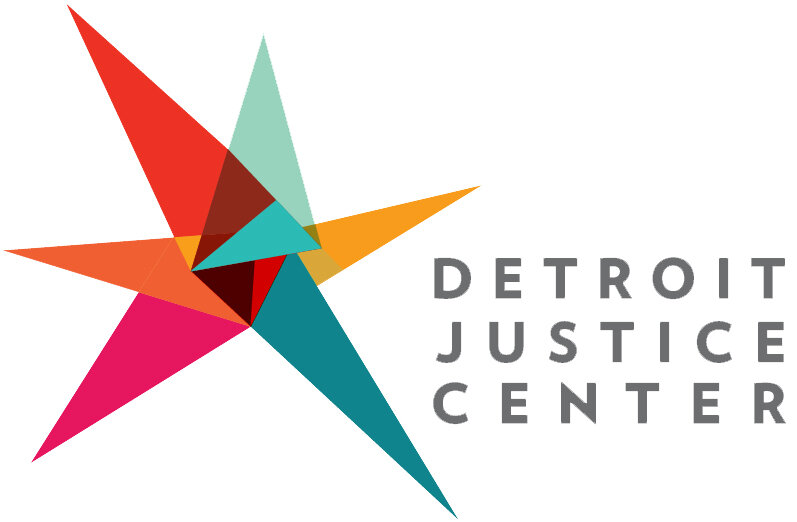DJC’s logo with images of DJC’s clients who we’ve helped get their driving licenses back.
DISCLAIMER- THIS IS FOR EDUCATIONAL PURPOSES ONLY AND CANNOT BE VIEWED AS LEGAL ADVICE
On October 1, 2021, the law changed and the Michigan Secretary of State (SOS) lifted driver’s license suspensions for certain driving law violations (website link). Here’s a few specific things we think you should know:
As the law currently stands, the Michigan Secretary of State should no longer suspend your driver’s license because you were issued traffic tickets for many types of lower level traffic offenses or because you missed a court date in these types of cases. Your license may still be suspended or revoked if you are charged with or convicted of significant driving violations, including but not limited to no-insurance violations, driving while intoxicated, reckless driving, or any violation that results in injury or death. Additionally, the law amends specific requirements for suspension in Friend of the Court cases. This means that some people may be eligible to have their suspensions lifted in certain child support matters.
The Secretary of State is sending letters to people whose suspensions have been lifted in accordance with the new laws. Additionally, the letter will indicate whether your license may be eligible to be reinstated, along with outlining the requisite next steps, if any, that you must take.
Very Important Notes:
-
This change in the law does not affect the amount of money you may owe to courts for traffic offenses. You are still on the hook for those fines and costs.
-
The court can still pursue various avenues to collect these costs, such as collections agencies, garnishment, or requests for you to appear at a show cause hearing to indicate whether your failure to pay was wilful (or was because of your inability to pay). Failure to appear at a show cause hearing may result in a warrant for your arrest.
-
Where your non-payment of fines and fees was because of financial hardship, the new law does not eliminate avenues for requesting grace or relief from the court, such as submitting a hardship letter (a formal request for the court to consider your economic circumstances and grant relief or a payment plan).
-
-
If you had active traffic warrants and pending traffic cases before the change in law, you must still take action to clear these warrants and resolve these cases. Additionally, the court may still issue warrants for your arrest for failure to appear in court going forward.
-
This means that even where your previously suspended license is reinstated, if you are driving with a valid license but on an open warrant, an officer on patrol might still run your plates, pull you over, and ultimately have grounds to arrest you because of the warrant. It also means that such traffic warrants may appear on criminal background checks that employers may run.
-
For this reason, it is still critical that you have your driving record run by the SOS, contact any courts where you have tickets, and attempt to clear warrants/resolve cases as soon as you can or are financially able to do so. Specifically, you should ask the courts what your total balance is for any resolved cases and whether you have any additional pending cases against you that are in warrant status, to determine your best path forward. If you have misdemeanor cases pending against you, you are entitled to representation by a public defender who that court will appoint for you, usually at the first hearing.
-
3. Even if your license is no longer suspended, under Michigan law, the car you are driving must be insured–whether you’re driving your car or another person’s car. Driving a vehicle without proper insurance is still against the law.
4. Some people will not be eligible to get their license reinstated at this time. Below are just a few of the many exceptions we can highlight. This list is not exhaustive:
-
Michigan’s “points” system will not change. The Secretary of State will continue to suspend your license if you have accumulated 12 or more points on your driving record within a 2-year period. If you have 12 or more points within this time period, you will have to seek legal advice and petition the court or wait until the end of your suspension in order to have a valid license.
-
If your license expired during the time period it was also suspended, you will have to reapply to the Secretary of State for new license privileges. Reapplication may include re-taking a road test.
-
If your license has been revoked by the SOS, your status is unchanged. A license suspension and revocation are two different things. The new suspension laws do not apply to the SOS’s revocation process. If your license was previously revoked, it remains revoked, you must petition to restore your driving privileges when you are eligible.
-
If your license was suspended for driving convictions in other states, those suspensions will remain on your Michigan record until those other states remove the suspensions.
If you do not receive a letter in the next month, you can contact the Secretary of State’s office to see if your suspensions have been lifted or if you fall into one of the exceptions that prevents the suspension from being lifted at this present time.
DJC’s contribution to helping passage of the new Legislation
Detroit Justice Center Attorneys’ Erin Keith and Geoff Leonard along with staff researcher, Jade Chowning, authored Highway Robbery, a report detailing the injustice of courts and law enforcement targeting poor citizens and racial minorities to fund the courts and cities. Executive Director Amanda Alexander served on the Michigan Joint Task Force on Jail and Pretrial Incarceration, which recommended sweeping legislative changes including removing license suspensions for those who failed to appear in court or could not pay their traffic related tickets.
Both Attorneys Keith and Leonard testified before the Joint Task Force and the Michigan Legislature about the serious impact that suspensions have had on the poor and marginalized communities of Michigan, as well as how the laws actually increased poverty levels in these communities. Various Detroit Justice Center attorneys met with other state and local leaders and urged both reforming the enforcement system as well as the laws. Attorney Keith also sat on a coalition of local and state advocates, movement partners, and stakeholders, who were instrumental in reviewing proposed legislation line by line, providing feedback on its areas of strength and its shortcomings, and working to ensure the new laws would be impactful to the indigent populations we serve. While celebrating the October 1st implementation of the new laws, DJC advocates are continuing our efforts to ensure that these changes will be rolled out fairly and effectively, and also advocating for future changes to repair the harm caused by old laws.


